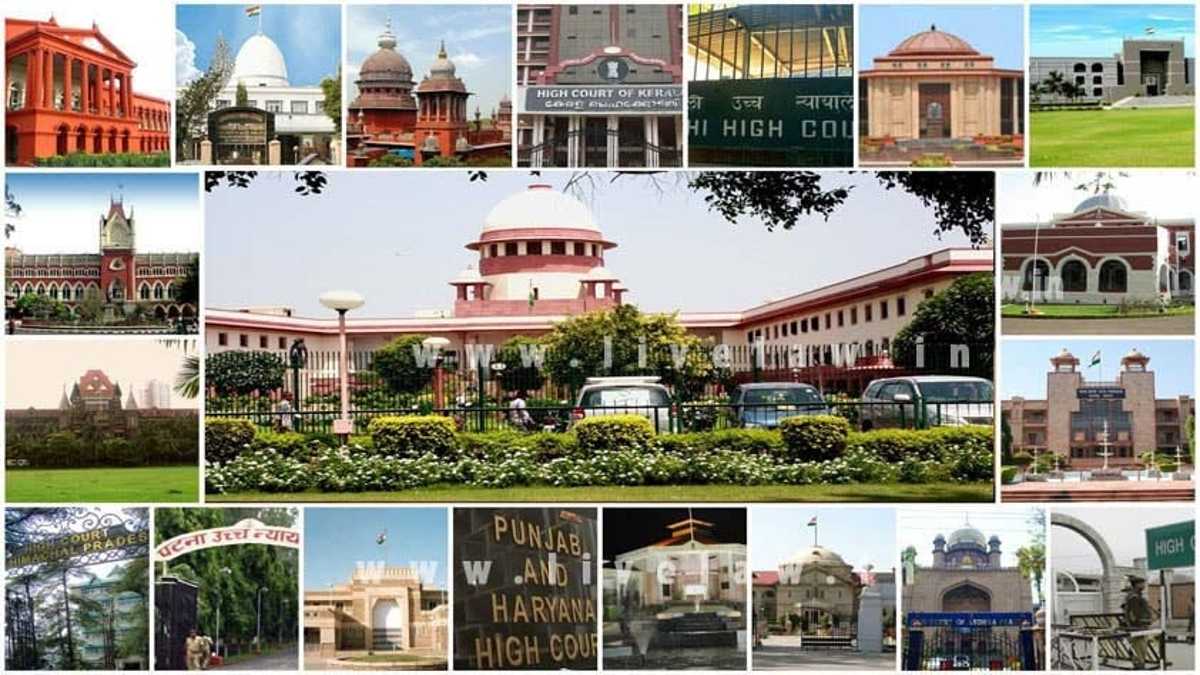The High Courts of India are the principal civil courts of original jurisdiction in each state and union territory. However, a high court exercises its original civil and criminal jurisdiction only if the subordinate courts are not authorized by law to try such matters for lack of pecuniary, territorial jurisdiction. High courts may also enjoy original jurisdiction in certain matters if so designated specifically in a state or federal law. Judges in a high court are appointed by the President of India in consultation with the Chief Justice of India and the governor of the state. The Madras High Court in Chennai, Bombay High Court in Mumbai, Calcutta High Court in Kolkata, and Allahabad High Court in Prayagraj are the oldest four high courts in India. Calcutta High Court is the oldest high court in the country established on 2 July 1862.

Each state is divided into judicial districts presided over by a district and sessions judge. He is known as district judge when he presides over a civil case, and session’s judge when he presides over a criminal case. He is the highest judicial authority below a high court judge. Below him, there are courts of civil jurisdiction, known by different names in different states. Under Article 141 of the constitution, all courts in India ( including high courts) are bounded by the judgments and orders of the Supreme Court of India by precedence.
The work of most high courts primarily consists of appeals from lower courts and writ petitions in terms of Article 226 of the Constitution. Writ jurisdiction is also an original jurisdiction of a high court.
All high courts have published recruitment notifications for various recruitment like Peon, Typist, Process Server, and Stenographer posts updated on 22 Oct 2024. There are a total of 25 High courts in India. The complete high court recruitment 2024 list in India is as follows.